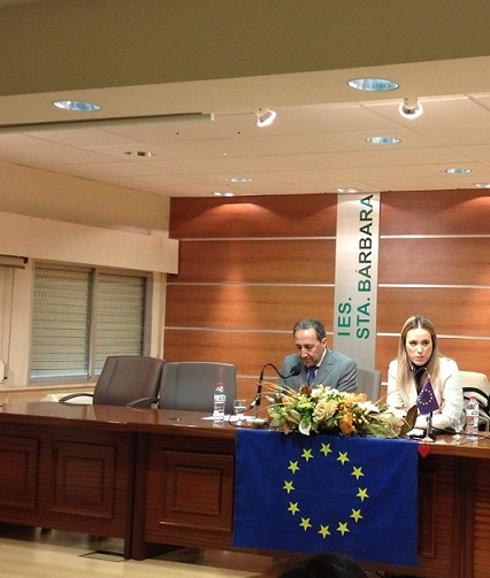

Sections
Highlight

Kishan Vaghela
Monday, 20 February 2017, 14:14
Compartir
The Santa Bárbara school of secondary and further education in Malaga began its International Week on Monday by welcoming European students who have chosen to take part in its Erasmus+ programme of healthcare courses.
The programme allows students from all over Europe to come to Malaga and undertake trainee work placements, which usually last between one and three months, in various hospitals and laboratories across the province. Representatives of Santa Bárbara's hospital and institutional partners abroad were also present at the event.
However, the most notable guests included the head of Education in the province of Malaga, Patricia Alva Luque, and a representative from Malaga city council, Eugenio Rodríguez.
In an opening speech, the principal of the institute, Antonio Archidona, hailed the Erasmus programme, which was established 30 years ago, as a scheme which has helped the institute establish links all over Europe and has allowed students to have different experiences thanks to the free movement of people.
Santa Bárbara is celebrating its 10th year of participation in the Erasmus programme, which was renamed the Erasmus+ programme in 2014, and this year welcomes students from Germany, Latvia and Finland.
Laura Leone, who is training to become a biomedical scientist, and is one of three girls to come to Malaga for a month from Hannover Medical School, sees this opportunity as a way to build international contacts and to learn something about new countries.
On the other end of the scale, Rocío Hernández Ríos, a Spanish masters student who spent two months at Queen's Medical Centre in Nottingham, stressed the importance of the scheme in understanding the differences within a given sector across the globe.
You learn what your job is like in other countries, how it works and the way it is organised. This allows you to compare it to the system in your home country and take and use the bits from your experience that seem useful and discard the ideas that do not work for you, she added.
Publicidad
Publicidad
Publicidad
Publicidad
Reporta un error en esta noticia
Necesitas ser suscriptor para poder votar.